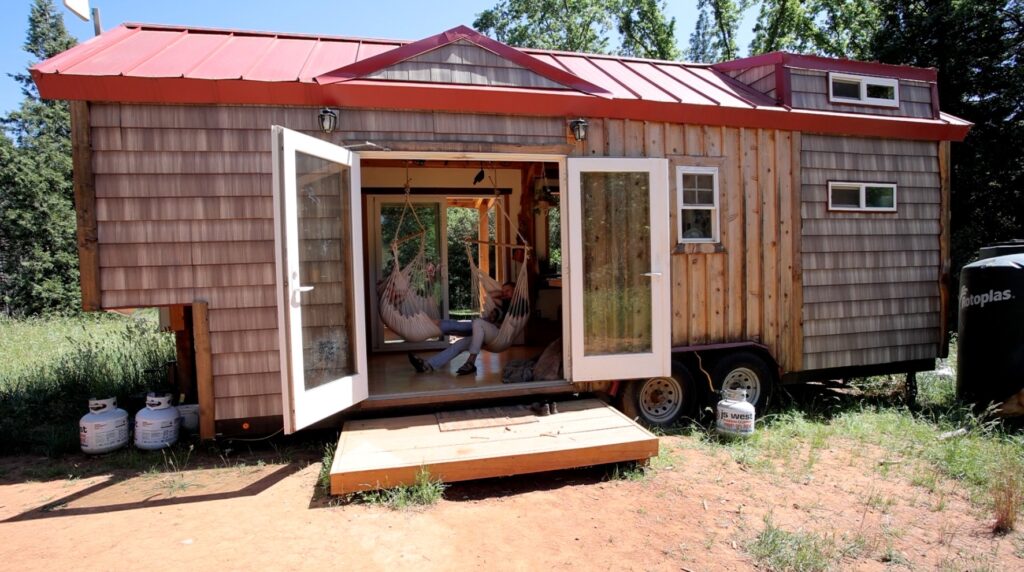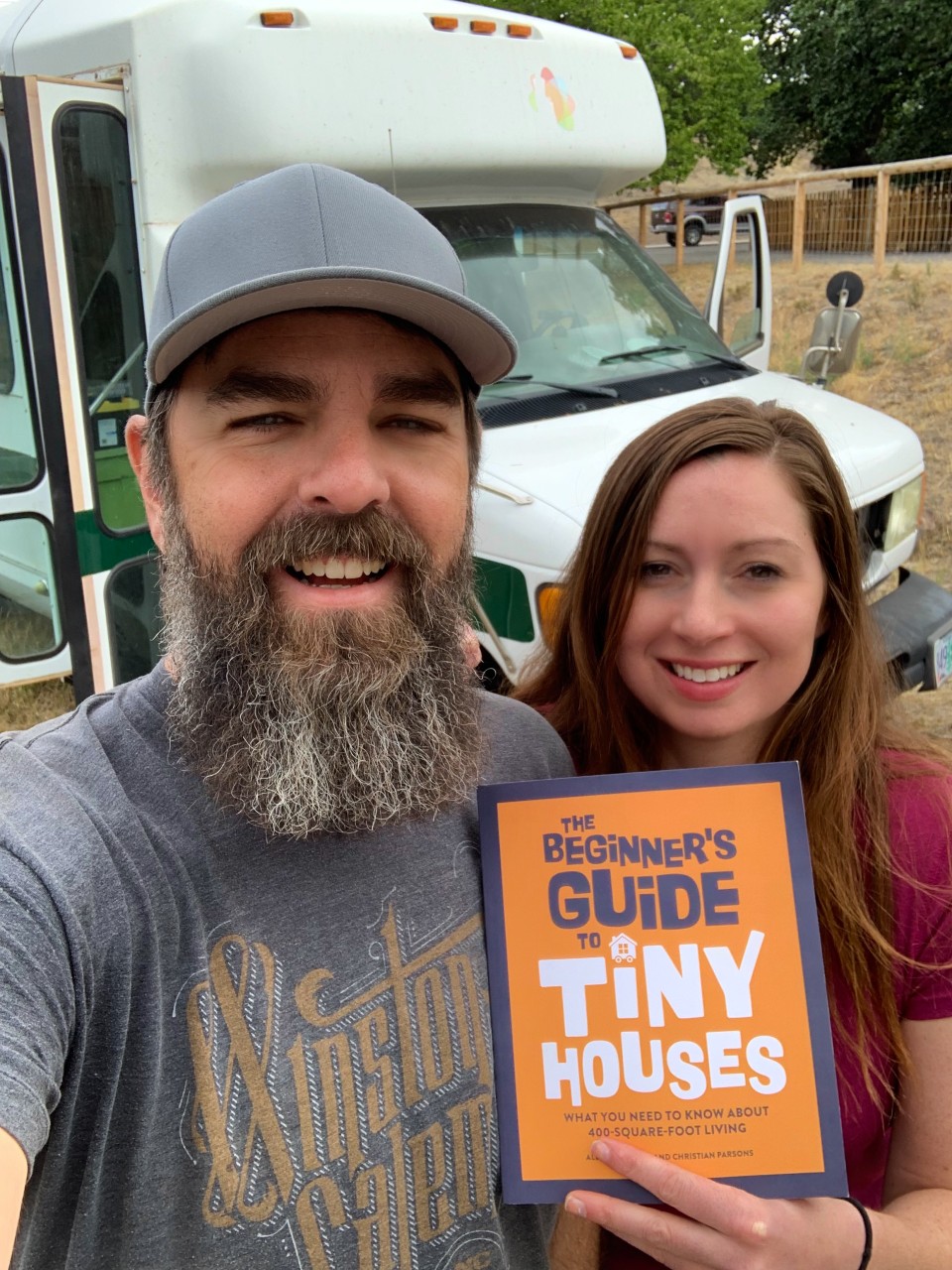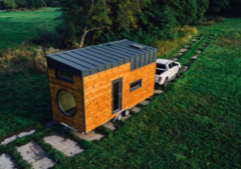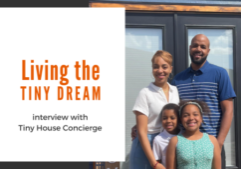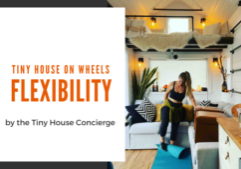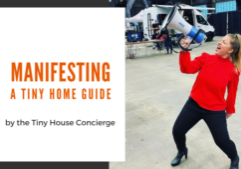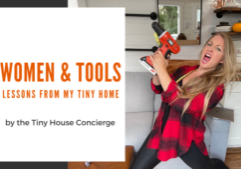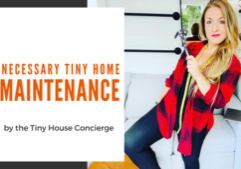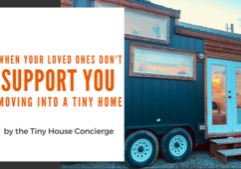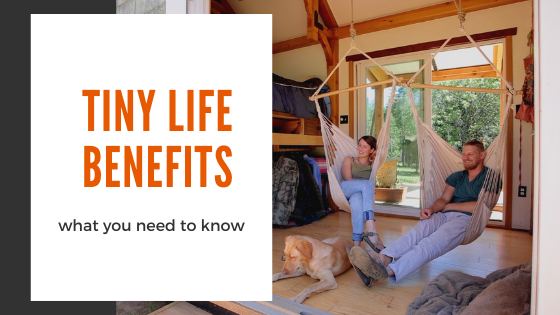
Tiny Wonders: 5 Advantages of Living in a Tiny Home
Less is more in so many ways.
For the past few years, the idea of living in a tiny home has garnered a lot of attention from individuals who want to move out of their family house, start living independently or finally own their own home. For some, this may seem impossible, but the growing popularity of tiny homes shows that living small is not such a bad idea after all. Anyone who lives in a small house can say for a fact that tiny living has a lot of significant advantages. Less can be so much more when it comes to lifestyle freedom and financial perks, among other benefits.
As tempting as it may seem, we must acknowledge that a tiny home is not for everyone (or every phase of life). Whether you're considering taking a big step soon or are just starting your tiny home journey, carefully researching the benefits and possibilities can help you adjust to the lifestyle.
Here are the perks or advantages of living in a tiny home that you need to know:
Low-Cost Construction
One of the significant advantages of tiny homes starts right away with low-cost construction methods. People who might not afford a home can now own one because of the cheaper cost, especially if it's on wheels or they can build it themselves.
Check out this free online class on Top 10 Ways to Save Money When Building a Tiny House by our friends at Wild Abundance.
Tiny homes with more sophisticated finishes or unique features can cost a higher price, but it depends on your budget on your style preferences. There's no one right way to do it or overall cost. For many, tiny house living provides the opportunity to enjoy higher-end materials than they would otherwise be able to do in a larger home.
Suppose you would like to own a tiny home today. In that case, you can buy a preowned tiny house on wheels (can find great deals and occasionally owner-financing) or commission a tiny house builder. You can also hire a real estate agent to find you a foundation-based small house—learn more by visiting Arnold Property website.
Saves Money
In many aspects, living in a tiny home saves a lot of money. You save money on heating, air conditioning, and property taxes because the house itself is not as big as the typical home. And also, as the space is smaller, less money is spent on interior decoration. You won't have to purchase large pieces of furniture which cost a LOT of money.
Because of its smaller size, repairs to your tiny home are likely to be a lot less expensive. To do the repairs, you won't need as much material. You may also be able to tackle them yourselves due to all the helpful tiny home-specific how-tos on YouTube.
If you hire someone to handle the work, they can complete it fast, saving you money on labor. For example, even if you need to change and rebuild your entire roof, the area is so much less that you could still save a lot of money for work—labor adds up!
Indeed, if you want to save up a significant amount of money, a tiny home is perfect for you. Think of what you can do with that: start a small business, take a vacation, save for retirement, or just have the ability to go out more to restaurants or shows.
Sustainable and Eco-Friendly
Tiny homes make it easier to minimize your carbon footprint that could help the environment in many ways—designed and built to give you precisely the amount of space you need, unlike traditional homes, which usually have unnecessary space. This idea of just owning what you require saves the environment from inessential clutter, energy waste and promotes a sustainable lifestyle.
When you go tiny, you further reduce your ecological impact by cutting down energy usage and waste. A recent study, The Ecological Footprints of Tiny Home Downsizers, found that most tiny home dwellers reduced their energy consumption by 45 percent after downsizing. Many further reduce their carbon footprint through the use of solar power.
Tiny homes use a smaller amount of materials than traditional houses do. This cuts down on the number of natural resources used to construct the house. Because of the smaller size, it's possible to reuse a significant amount of second-hand materials, reducing the environmental impact. A shorter construction process reduces the amount of energy used and pollution produced, making it environmentally friendly.
Saves More Time
By simply reducing the size of your living area and the number of items in your home, you can remarkably minimize the amount of time you spend cleaning. You have fewer windows to clean, a small space to sweep, and fewer dishes to wash. Living a minimalist lifestyle (at least minimalist by mainstream standards) naturally occurs since there is not enough space for too much stuff.
Less shopping and less cleaning ultimately provide even more free time for other things, making life easier. You can use this to spend doing what you like, and with the people you love.
Improves Lifestyle
Many tiny homeowners claim that minimizing their "things" and living small improved their quality of life and overall happiness. The process of transitioning into a tiny house can powerfully reset your perspective on real success, even if you just live tiny for a season of your life. Limiting your square footage naturally limits your ability to collect junk that clutters your home and outlook on life. This literal change of perspective can be vital to challenging societal norms and finding personal freedom.
Tiny homes teach you how to simplify your life while making the most of what you have. Every room in the house should have a specific function that could help you live your life to the fullest. Multiple uses in one space are possible with the most efficient designs.
Living in a tiny home helps you enjoy more of life because you save money and time. Low or no monthly payments free up a good amount of your income, allowing you to spend it on experiences like travel or local vacations.
With less space inside your tiny home to do things, you'll be motivated to do more outside of your home. While some might see this as a downside, it can be pretty healthy to be called to spend more time in the outdoors and your community.
Takeaway
Tiny homes are becoming a big part of modern housing for a reason. They offer a more cost-effective and uncomplicated way of life while allowing homeowners to enjoy their lives more robustly. Tiny living is excellent for people willing to give up the firm belief in the social concept of "bigger is better" in favor of "less is more."
Want to kickstart your journey? Check our book, The Beginner's Guide to Tiny Houses, and enroll in our Tiny House Rich Lifestyle Planning e-Course.

